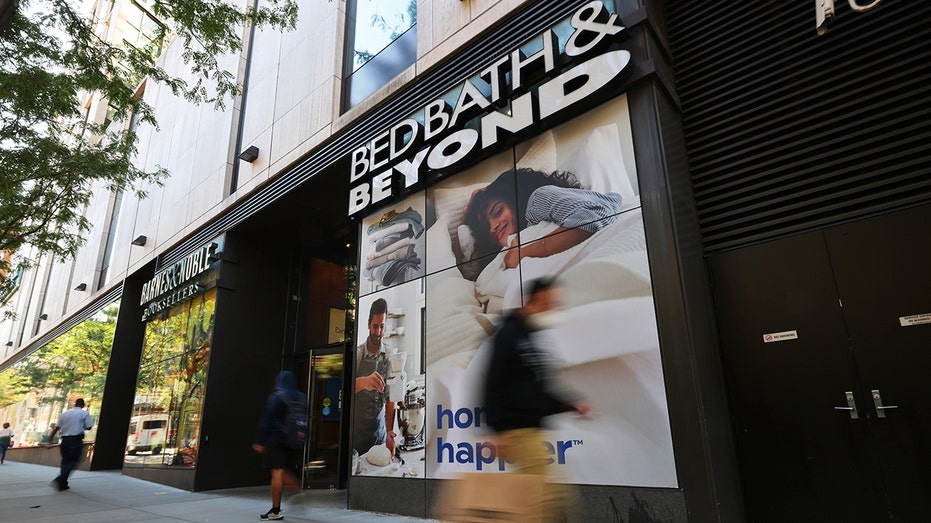Bed Bath & Beyond is making a comeback with smaller-format stores, but some industry experts told FOX Business that the size of its stores does not matter as much as the product itself.
That is where its prior management team missed the mark, according to CSG Consulting founder Kimberly Reuter and Hitha Herzog, retail analyst and chief research officer of H Squared Research.
Last week. Kirkland’s Inc. finalized a $25 million investment deal with Beyond, the parent company of Bed Bath & Beyond, Overstock, Zulily and BuyBuy Baby, in which Kirkland’s became the exclusive brick-and-mortar operator and licensee for new, smaller format “neighborhood” Bed Bath & Beyond locations nationwide.
In October, when the deal was first announced, the companies said they would leverage Kirkland’s store operations expertise and its brick-and-mortar footprint and to curate an “assortment of iconic legacy vendor partners.” Kirkland’s Inc. CEO Amy Sullivan said in a statement at the time that “Kirkland’s Home has a 58-year legacy in the home decor sector, and the core strength of our brand and this organization lies in merchandising and store operations.”
Reuter said that the old Bed Bath & Beyond had been riddled with issues such as “poor inventory management, slow adoption of online shopping trends and overreliance on coupon shopping” that caused it to file for Chapter 11 bankruptcy protection in 2023.
BED BATH & BEYOND BRAND IS COMING BACK TO PHYSICAL STORES
In June of that year, Overstock acquired the company’s intellectual property assets for $21.5 million, and by October, changed its corporate name to Beyond Inc., though it continued to fight for survival amid evolving retail dynamics. Last year, it backed away from a deal with The Container Store Group that would have allowed it to use a section within the store’s real estate locations to showcase its assortment of kitchen, bath and bedroom items, which would be co-branded.
“Opening in a smaller format isn’t going to solve any of those problems,” Reuter said. To exacerbate the issue, the company served customers at a time when broad access to home goods was limited. Today, there is relentless competition in the home goods market between Amazon, Temu, Target and Wayfair, Reuter said.
Herzog agreed, saying that while “Bed, Bath and Beyond has incredible brand equity,” that’s “where its value primarily exists.”
“The store’s challenges weren’t about brand recognition, the challenges had to do with the stores not focusing on what the consumer wanted on a local level,” Herzog said. She added that other big box stores like Walmart and Target do a better job at appealing to a consumer based in that local market.
Reuter predicted that the best case scenario for these stores is to become a physical outlet for Kirkland’s private label goods as well as Overstock and Zulily products.
BED BATH & BEYOND SHUTTERED STORES: THESE COMPANIES ARE MOVING IN
“This play starts to look very similar to TJMaxx’s Home Goods stores. We also have a potential for these physical locations to become return centers for the sister companies,” Reuter said.
Regardless, Reuter said if Bed Bath & Beyond and Kirkland’s do not address the root cause of the company’s failure, supply chain and inventory, “they will fail again.”
FOX Business reached out to Kirkland’s for comment.

“Layered onto this, the pending increase in tariffs, which will in turn increase product cost, could be the perfect storm for another failure,” Reuter added.
On the other hand, Herzog said the backing of Kirkland’s makes a significant means the company is better positioned to overcome its prior challenges.
Before, management was making decisions that weren’t exactly in line with what their core customer would want, Herzog said. Today, Kirkland’s is “driving the conversation and creating the roadmap of where this company is going to go,” Herzog said. “With Kirkland’s backing them, that makes the difference this time around.”
“Without throwing management back up into a management point under the bus, they had issues. I don’t think they really understood the pivot. I think they stumbled after the pandemic,” Herzog said. “They didn’t understand how to make their business nimble enough to withstand a huge hit to the retail industry and their business like the pandemic had.”
Read the full article here















